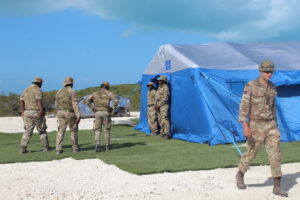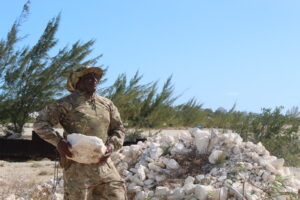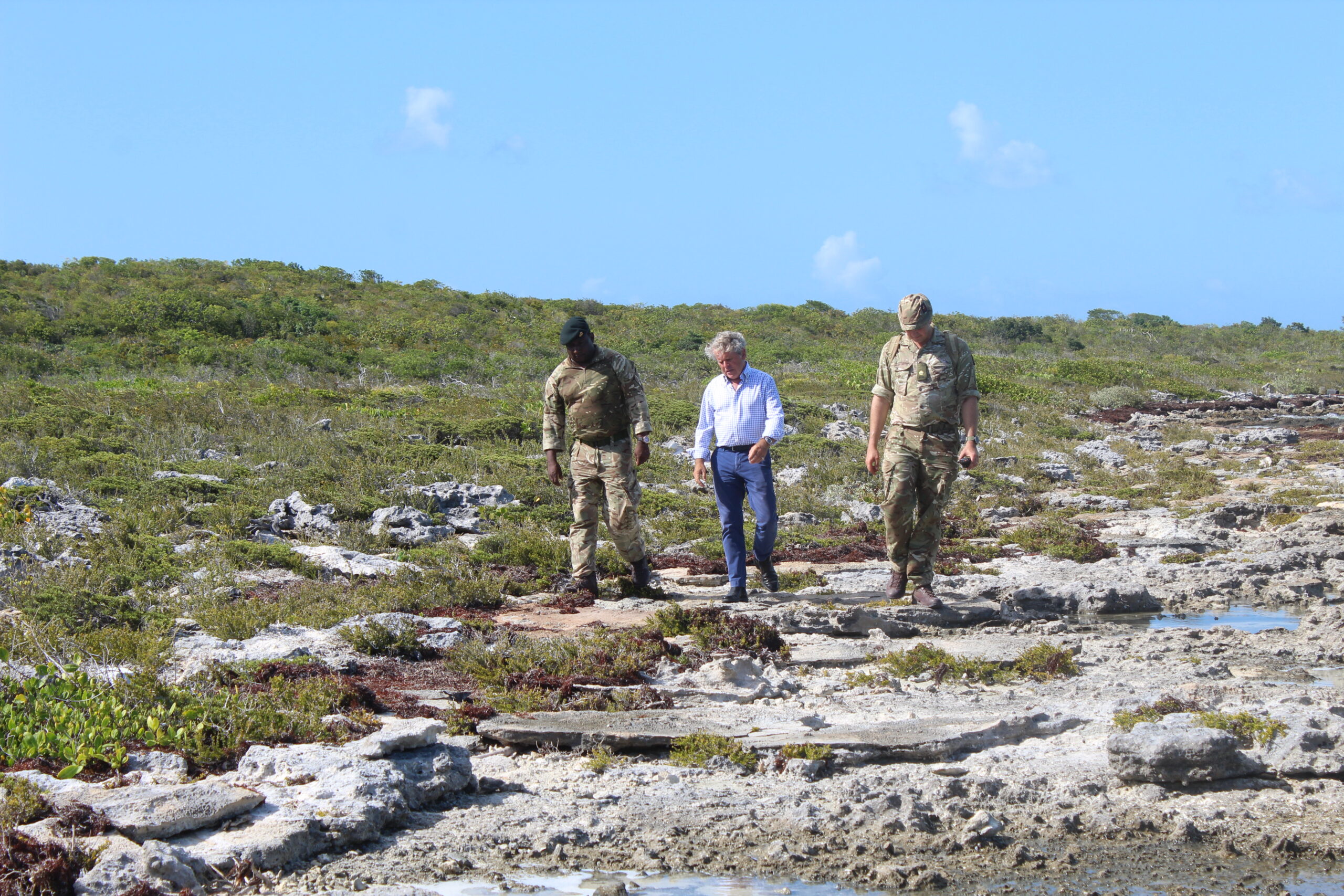By Deandrea Hamilton
Editor
#TurksandCaicos, July 25, 2022 – Bird Rock point is a protected heritage and nature sanctuary. It is also where a consortium of smugglers like to make landfall. It is remotely located. Sparsely populated. Has a tricky rocky shore. And waters are usually rough. It makes it an unpopular site for tourists and residents and therefore an enormously ideal spot for nefarious activity.
There were a few things going on when media was invited to be debriefed on a training exercise which began on July 10. We witness a simulation where a frantic brother brought his profusely bleeding sister to be treated at the field hospital, which was set up and waiting. The woman, who convincingly played her role, was eventually escorted to the hospital for immediate medical care.
hospital, which was set up and waiting. The woman, who convincingly played her role, was eventually escorted to the hospital for immediate medical care.
Members and new recruits of the TCI Regiment were learning how to handle an hysterical patient.
They were setting up barriers and perimeters and they were setting up camp; very inconspicuously in the coastal coppice cradling the Point.
Governor Nigel Dakin, fresh off summer holidays and marking another year in the territory this July was inspecting the operations and was impressed with the performance and grateful for the British military support.
Founding Commander of the Turks and Caicos Regiment, Ennis Grant confirmed there were over 50 men and women dispersed at the site in training mode.
“The exercise is going well, we have about 50 persons involved in the exercise, we have 18 new recruits and 24 marines who are currently involved. I think the troops are very enthused and they have been very enlightened.
We have a team from the Royal Dragoons, the British Military and the Commandoes who are assisting us have done an awesome job in putting this together,” said Ennis Grant, Lt Col TCI Regiment.
The training involved moving heavy debris, including vehicles using only brawn, no machines. It also involved endurance and sacrifice as modern amenities were absent as the marines and recruits spent the night in watch, crouched in bushes, watching and waiting. And synergy was vital; respect for authority and the chain of command, hospitality and diversity were among the observations made by this journalist was we were given carte blanche inspection as well.
Nigel Dakin also said, he is confident that the humanitarian training offered by the British has aided the level of readiness of the local regiment, in the event of a hurricane.
“What I’ve noticed, and it doesn’t matter whether I look at the private sector or the government sector, every year we incrementally get better and I think building the Regiment as we are, every year just makes us a step better.”
Now, having experienced four hurricane seasons in the Turks and Caicos, the Governor explained, “Nothing withstands that first blast that we get but what we are building up now is the ability to respond ever quicker to the events as they unfold.”
The British contingent of sixteen members was welcomed by the (Acting) Governor, H.E. Anya Williams along with members of the National Security Secretariat ahead of training which stared on July 10. Hon Washington Misick, TCI Premier has paid a courtesy call and was pictured with the officers on July 15 at the Louise Garland Thomas High school in Long Bay, where most exercises were held.
The TCI Regiment members are now in possession of their own government issued firearms – Glock pistols – and the training experiences included: crowd management; diversity and inclusion; marking helicopter landing sites; weapons handling; battlefield casualty medical and hazard management.


 News1 week ago
News1 week ago
 Bahamas News1 week ago
Bahamas News1 week ago
 Caribbean News1 week ago
Caribbean News1 week ago
 Bahamas News6 days ago
Bahamas News6 days ago
 News1 week ago
News1 week ago
 Health6 days ago
Health6 days ago

























